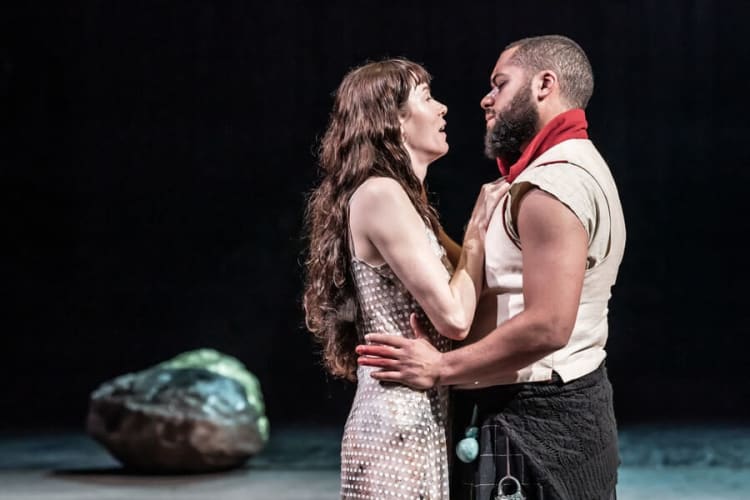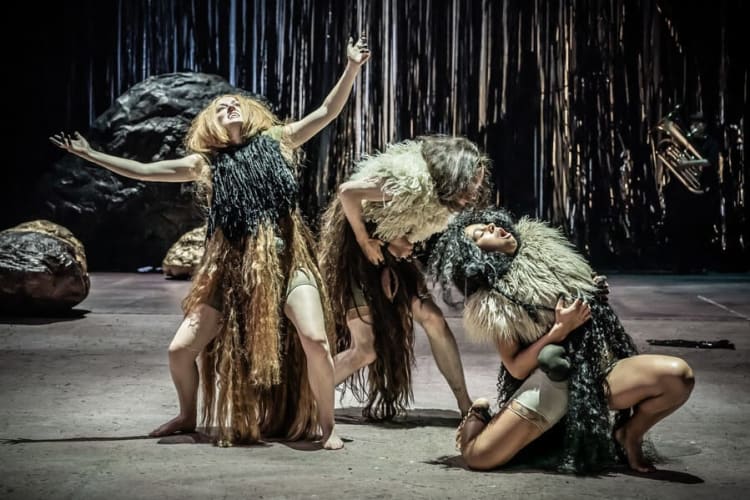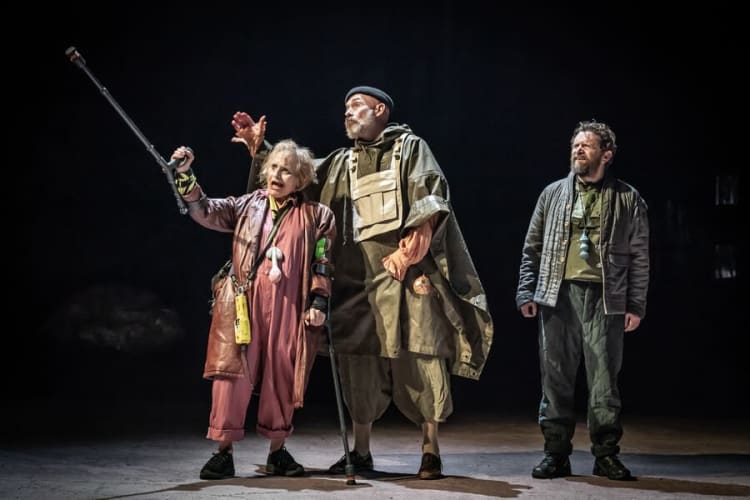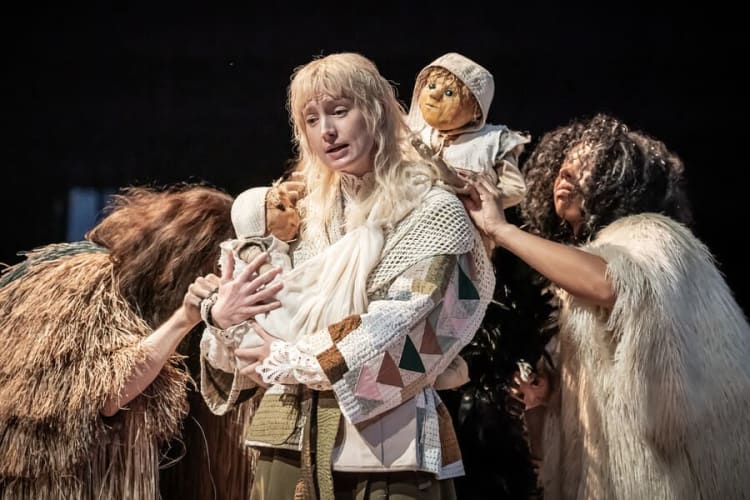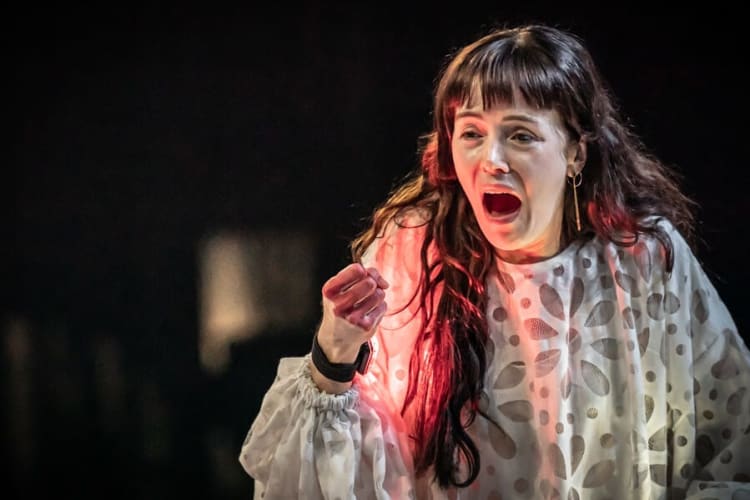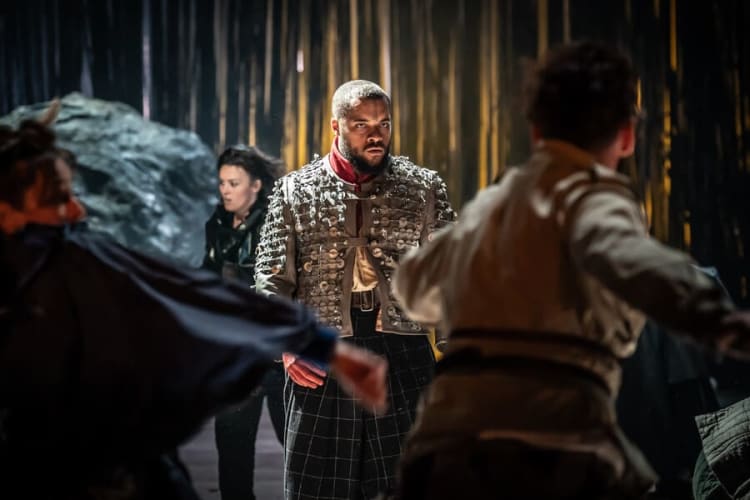Brass blares, the skirl of pipes, a voice intones darkly in Gaelic; dead crows fall from the sky, light barely penetrates the swirling fog, and from underground emerge three witches in furs and feathers. Immediately, we are immersed in the mists and myths of 14th century Scotland.
The opening of this Macbeth, directed by Wils Wilson, with designs by Georgia McGuinness and superb lighting effects by Kai Fischer, is the most evocatively spine-chilling I’ve ever seen.
That’s also due to a raw, blistering score by Alasdair Macrae that somehow mixes sousaphone, tubas, bass trombone, bagpipes and drums, often on-stage, that would scare the trews off any ordinary God-fearing folk.
And just as the setting gets to the heart of that dark, brutal kingdom, Reuben Joseph is equally impressive as he mines the deep complexity of Macbeth himself, torn apart between ambition and conscience, treason and loyalty. "Full of scorpions is my mind," he exclaims while banging his head as if to shake them out. By the end, he will howl or whimper like a wolf, as if ready, in only half-human form, to join those witches on the heath.
His relationship with Valene Kane’s Lady Macbeth is of more than usual interest, one of mutual manipulation. The muscular thane is a man of violence, at home as well as the battlefield, but the physical strength that he uses upon his wife is no match for her weapon of choice: sex.
Alluring as she is, Kane doesn’t quite display that depth of malignity of some Lady M’s, and the mad scene had the feeling of one playing madness rather than being possessed by it.
Many of the leading male roles are played by women, common enough at the RSC, but it is always a greater challenge when, particularly if of slight build, they take on tough military characters. I was impressed therefore by Shyvonne Ahmmad as a forthright Malcolm, who spoke with an authority that added considerable height to her stature.
The most commented upon aspect of the production is likely to be the substitution of a stand-up routine for the Porter by comedian Stewart Lee that replaces Shakespeare’s comic interlude after the death of Duncan. I’ve always found the original tedious, with its obscure references to politics of the time, so enjoyed this lively banter, delivered, as adopted by all the cast, with a pleasing Scottish tang by Alison Peebles. "Doing it for yer GCSE, are ye?" she addressed a young member of the audience. Such would have been the style the author had in mind 400 years ago, so it’s OK by me.
Not everything worked so well. I’m unsure about Macbeth’s death at the hands of Macduff: it is long, messy and concluded in half-obscurity by a series of heavy thuds. The effect is dramatic and realistic in its brutality, but arrests the momentum of the play at its climax.
Less successful are some bizarre costumes, including Malcolm’s multi-coloured apparel, and the intrusion of some modern paraphernalia, particularly the use of a microphone for Macbeth’s ‘Tomorrow’ speech. It was as if Joseph had left Scotland behind to return to his starring role in the musical Hamilton. It was out of place.
